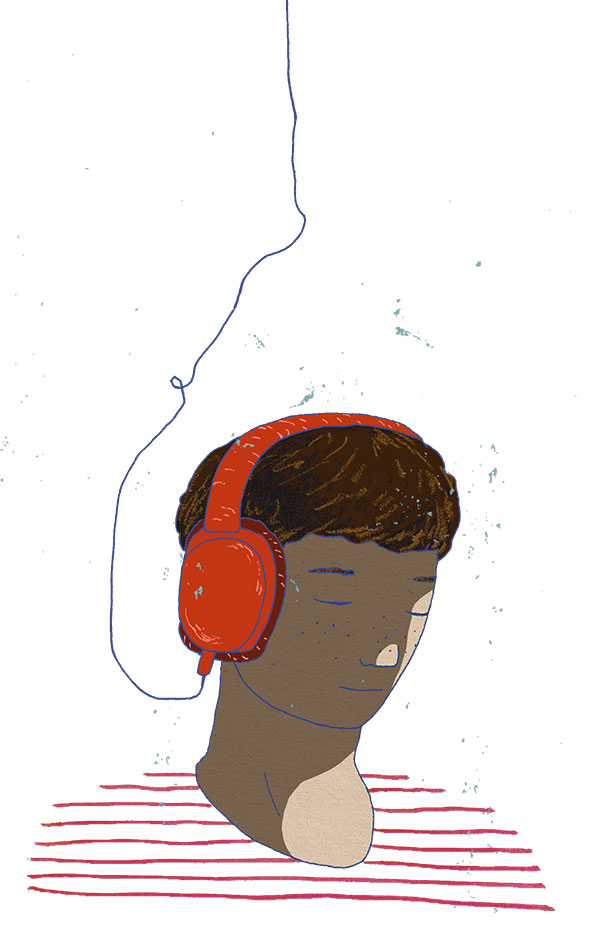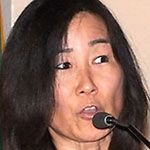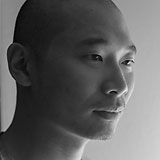
“To what degree is it accurate to call the War on Drugs the New Jim Crow? That is, is it completely justified, partially justified, or unjustified to say that the War on Drugs is a racial caste system? Please give clear reasons for your position.”
“Should Congress make major changes to the current system of mandatory minimum sentences? Why or why not? You may also argue that mandatory sentences should be completely repealed.”
These two questions appeared as writing prompts for the class Scott Kushigemachi teaches at El Camino Community College in Torrance, California. But Scott’s class isn’t sociology, criminal justice, or even political science.
Scott teaches English composition as a way of encouraging “reason and imagination [as] resources necessary for human flourishing”. His intention is to not just refine writing skills, but also to challenge his students to examine highly complex socioeconomic questions and how they formulate their positions.
Scott would say he spends his days seeking method in the midst of mystery.
Light leaks through the miniblinds
And the sun seeps through in parallel lines
The coffee machine is dripping
The dreams I had are slipping, who knows where ...
I have long been drawn to interviewing people who do not pursue or usually get the spotlight. Scott is one who seldom seeks accolades, but instead lives a life that values subtlety and the mundane.
Many Asian Americans internalize and live out middle-class, capitalist, individual-focused values wrapped in Christian doctrine. However, we have yet to deliberately untangle and dismantle those attachments of status and stature in a vocational discernment process.
When I supervised college interns, many shared that they wanted to do social work or justice advocacy, but “had to be an engineer, lawyer, or doctor” because their parents were paying for their education or had a certain set of expectations. They did not often find breathing room to seek God’s hand in guiding their purpose and calling.
With my ear between my pillow and head
It’s like I died last night
and now I’m back from the dead
And life feels a little bit stranger
Than when I left it here last night ...
After Scott shared the class prompts about mass incarceration, affirmative action, and immigration reform with me, he also showed me reading materials which have deeply resonated with my own life.

Many years ago, I worked with people going in and out of the “justice” system through the Asian American Drug Abuse Program in South Los Angeles. I remember one family that was dealing with recovery from drug addiction, incarceration, and the struggle of living in impoverished conditions. Each family member required some form of public assistance. All were at risk of the real and immediate violence in their neighborhood.
As a counselor, I was able to assist with public housing, but was not able to impact the very structures that contributed to their living situation. I recall my own frustration with being unable to provide a long-term solution for those who were displaced or unemployed because of systemic issues.
Scott is getting his students to look at these systemic problems, yet Scott does not present this material to advance his agenda. He believes it will spur his students to think about a multitude of issues, such as race, class, privilege, access, and economics, and to find hope in the midst of these.
Scott is unpretentious and quietly deliberate. Why serve as a professor in a community college and not a university with greater prestige? He references Frederick Buechner’s maxim that your vocation is “where your deep gladness and the world’s deep hunger meet”. El Camino College is not glamorous. Most of these students do not have a trust fund. Many will be the first in their families to attend college. They live and work in the working-class neighborhoods of Inglewood, Hawthorne, Lawndale, Gardena, and South Los Angeles. They intermingle with students coming from the more middle-class suburbs of Torrance and upper-middle class Palos Verdes.
“It is rare to have such a diverse population in one space. The challenge I face, yet enjoy, is making the classroom relevant and significant to such a range of students,” Scott says.
We treat our life like it’s a given
But it’s not like we’ve always been living
And I can’t force my heart to beat
And I can’t force your heart to beat ...
How does one participate in “God’s care for the created order”? Through deep, intentional spiritual formation practices? Yes.
But Scott also believes we first encounter God in the mundane, the unremarkable, and the profoundly ordinary. Sometimes, when he hears a siren, he pauses to ask God to be present in the ambulance, with the people who are suffering — incarnational, intentional.
Productivity is highly prized in our culture. It becomes intertwined with worth and busyness. There is a certain noise level in achievement. Stillness can be unnerving for some, but Scott finds value in slowing down and listening for God. A few years ago, Scott led a small group of us through the quiet encounter of “Lectio Divina”, Latin for “divine reading”. This process of listening to God’s bold and subdued words as written in Scripture contributes to being led by the Spirit in one’s vocation, in one’s life.
Scott also meets with a spiritual director once a month. He has done so for the last 11 years, almost without exception. Spiritual direction is a practice where one attempts to discern God’s direction in dialogue with another person who is trained to ask questions and create a space that is hospitable to this type of reflection.
As we talked about creating deliberate spaces to experience God’s presence, Scott brought up his perspective on gang life. I appreciated his recognition that there are some tenets of gangs that are not entirely detrimental to society or individuals, values such as authenticity, loyalty, and not buying into traditional forms of social power. This mentality runs counter to the individualism mentioned earlier. It also withholds judgment toward those students who may have had longer and more arduous “stints” with gang life.
I’m lying in bed in this suburban sprawl
And I don’t want to drink life through a cocktail straw
Or not at allAnd I don’t want to drag my feet through the day
I don’t want to drag my feet through the day
We do not see eye to eye on using terms like “career”, or its corresponding values of comfort, success, and status. For me, career connotes a middle-class job progression, whereas vocation implies a sense of calling and life purpose. Scott suggests, “Perhaps one’s vocation is always larger than a particular career. Ideally, our career will be our best interpretation and expression of our vocation at any given moment.”
As a young boy, Scott hoped to be either a scientist or an artist. And in many respects he is now both of these things, engaging both reason and creativity. He asks that his students engage these in their own lives, teaching them to experience the extraordinary by embracing the ordinary. For Scott, God is somehow involved in such truth telling.
Life is always strange, and it’s always familiarAnd it’s rhythm, repetition, and it’s peculiar
Song lyrics by Scott Kushigemachi, “Good Morning”.


